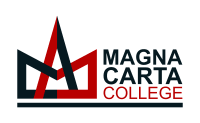Browse thousands of study programs from around the world.
What do you want to study?
Where do you want to study?
Start your education journey here
Discover
Browse thousands of degrees from around the world
Compare
See programs side by side to find the right one for you
Connect
Contact the schools' admissions offices directly
Skip all disciplines
Discover programs by discipline
Languages
Management Studies
Business Studies
Humanities Studies
Technology Studies
Economic Studies
Art Studies
Social Sciences
Design Studies
Engineering Studies













